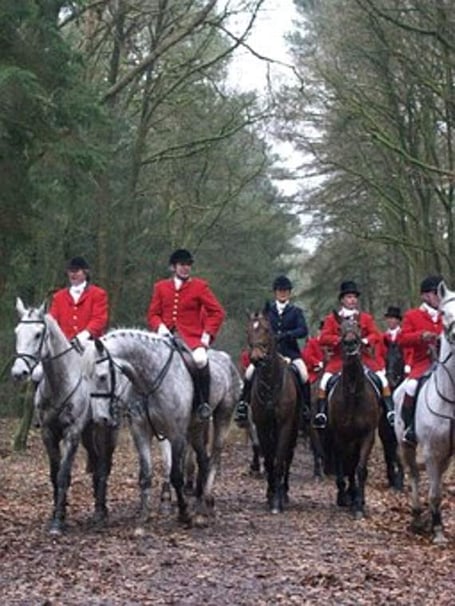ANIMAL welfare charity, the League Against Cruel Sports, has written to the National Trust to urge the organisation to cancel a controversial hunting licence covering the Sugar Loaf mountain.
The estate, promoted as a haven for upland wildlife by the National Trust, issued a ‘trail’ hunting licence this week to the Monmouthshire Hunt.
According to the League, ‘Trail Hunting’, which was invented after the fox hunting ban was implemented in 2005, has been widely dismissed as a fraudulent activity that is used as a cover-up for the illegal pursuit of foxes.
Chris Luffingham, director of campaigns at the League Against Cruel Sports, said, ‘It’s time the National Trust stopped allowing fox hunts on their land and got in line with the views of the general public, the vast majority of whom abhor this barbaric practice.
‘The fox hunting ban is being flouted by the hunts, yet their contemptible behaviour is essentially being condoned by the National Trust when they issue trail hunting licences.’
The National Trust issued 25 licences across England and Wales last year but three of those were then suspended due to illegal fox hunting activity.
The League claim that hunts are virtually never seen laying genuine trails. Judge Michael Pert QC described the conduct of members of the Fernie Hunt as a ‘cynical subterfuge’ when they used trail hunting as an excuse to disguise the fact they were hunting a fox, in an unsuccessful appeal in 2011. There were 284 reports of illegal hunting activity and 43 reports of foxes being killed by hunts across the UK during the last hunting season.
The figures were compiled from reports by the public into the League’s Animal Crimewatch service, posts by monitoring and saboteur groups on social media, and information gathered by professional investigators employed by the League to monitor hunts.
The League has welcomed a recent decision by the National Trust to deny two hunts access to its Long Mynd estate in Shropshire after a fox was witnessed being chased on its land.
Chris Luffingham added, ‘It’s time for the National Trust to follow the positive examples of landowners such as the Woodland Trust, English Heritage and National Trust Scotland, which don’t issue trail hunting licences on land they manage.
‘We are calling for the Hunting Act to be strengthened to close loopholes that allow activities such as trail hunting to be used as a cover for illegal hunting and to finally bring about an end to cruel sports in the UK.’
A report on the Monmouthshire Hunt website states, ‘We have been trail laying and hunting within the law. There continues to be significant hunt ‘monitors’ and saboteurs attending meets throughout the country.’
A statement from the National Trust says, ‘Any activity associated with the term hunting continues to provoke strong emotions. We recognise our approach will not satisfy everyone. Our charity was also established for the nation’s benefit and to provide the widest spectrum of public access. We believe this should include trail hunting, where it is consistent with our conservation aims and is legally pursued.’A spokesperson for the Monmouthshire Hunt commented: “The Monmouthshire Hunt is licensed by the National Trust to access their land."Under the terms of the licence the hunt is entitled to trail-hunt and exercise the hounds, activities which are completely legal. "The vote to ban trail-hunting on National Trust land was rejected by its members at the Trust’s AGM in 2017. Since then the Trust has implemented a strict monitoring programme to ensure hunts are complying with the terms of their licence and this is much welcomed by the Monmouthshire. “It is 14 years since the Hunting Act was enforced yet there have been just 27 convictions under the Hunting Act 2004 relating to registered hunts, despite more than a quarter of a million days hunting having taken place by over 250 hunts during this time. "These figures do not suggest that hunts are breaking the law and is confirmation that the infrastructure of hunting remains an integral part of the countryside and is here to stay.”





Comments
This article has no comments yet. Be the first to leave a comment.